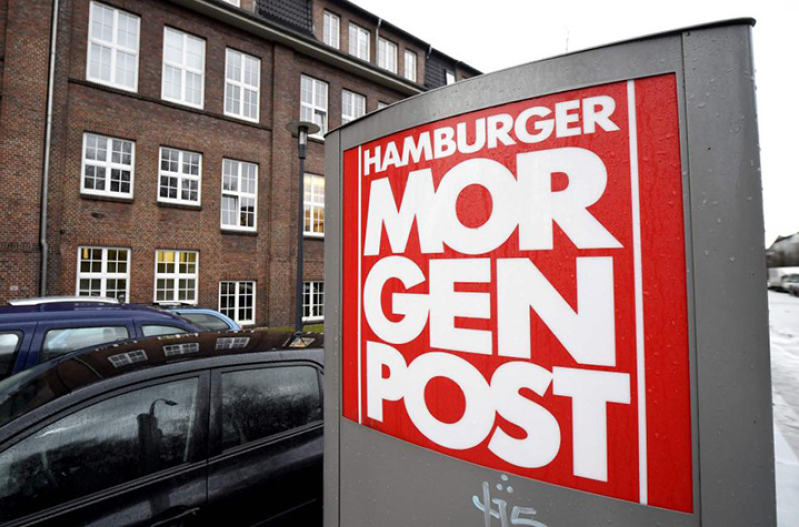
A tabloid newspaper in Germany reprinted cartoons that mocked the Prophet Mohammed from French satirical paper Charlie Hebdo, which may have caused its offices to be firebombed on Sunday.
According to Deborah Cole of Agence France-Presse, or AFP, police in the northern city of Hamburg, Germany noted that the attack at the headquarters of Hamburger Morgenpost caused only slight damage. Police also said that no one was inside the building at the time of the attack.
"Rocks and then a burning object were thrown through the window," a police spokesman told AFP. "Two rooms on lower floors were damaged, but the fire was put out quickly."
Kirsten Grieshaber of the Associated Press reported that Hamburg police detained two men near the newspaper building on suspicion of an arson attack early Sunday. A Molotov cocktail and several stones were found in the basement of the building, according to police spokeswoman Karina Sadowsky.
According to AFP, police said that the men, ages 35 and 39, were acting suspiciously near the scene and were detained. Police noted that they are currently being questioned.
The Associated Press reported that the Hamburg fire department responded to a call from a security company informing them of the building's fire alarms sounding off sometime after 2 a.m. Sunday.
"We quickly managed to extinguish the fire," Hamburg fire department spokesman Joern Bartsch said.
According to AFP, the Hamburger Morgenpost, known by the locals as MOPO, placed the Charlie Hebdo cartoons on its front page with the headline "This much freedom must be possible!" The paper, which has a circulation of around 91,000 based on the AFP report, provided regular updates on the firebombing of its website.
"Thick smoke is still hanging in the air, the police are looking for clues," it said in its initial story, under the headline "Arson attack on the MOPO - Due to the 'Charlie Hebdo' cartoons?"
Cole noted that the newspaper removed all references to Charlie Hebdo later on Sunday. However, a regional representative body for the media called the attack a "cowardly and insidious act of terror against press freedom."
Hamburger Morgenpost's editor-in-chief, Frank Niggemeier, released a statement saying that his team was "shocked that something like this could happen in a cosmopolitan and liberal city like Hamburg." However, the AFP reported that he would not speculate on the motive behind the attack, only mentioning that the Monday edition of his paper would be published as planned.
The Associated Press reported that the German paper published the Charlie Hebdo cartoons the day after the attack in Paris to express solidarity with the slain journalists. Other national and local German papers that published the cartoons are now under police protection.
AFP noted that Hamburg has a population of around 2.4 million people.







